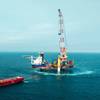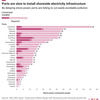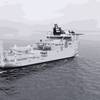HSBC: P&I Clubs Must Improve Underwriting Performance
HSBC says the clubs relied too heavily on investment income made during the long bull markets of the 1990s which, rather than being regarded as a bonus and employed to bolster free reserves, was instead used to subsidise new underwriting business. It adds that the clubs were more assiduous in their quest to attract new business or tonnage at the expense of existing and established members, whose money had been used to earn the healthy investment returns in the first place. Nigel Russell, Managing Director of the Marine Division of HSBC Insurance Brokers, concludes, "The plain and simple fact is that the clubs must improve underwriting performance. They must also bolster free reserves, and cannot rely on investment income."
HSBC also predicts that, if there is a serious stand-off between the International Group of P&I Clubs and the lead underwriters of the Group reinsurance contract, it is quite probable that the pool limit will be increased from its current level of $30m. "Even the smaller clubs should be able to withstand an increase in pool limit, even if it were to be doubled," says the broker. "The smaller clubs would find it far harder to withstand a significant increase in retention. Only four clubs do not buy separate reinsurance to protect their retention of $5m, and these four are amongst the strongest in financial terms. All the smaller clubs buy reinsurance to protect their retention. This low level of reinsurance is costly and is likely to be more costly and harder to buy in the immediate future. A significant increase in retention could be detrimental, especially to those clubs with a lower capital base."












